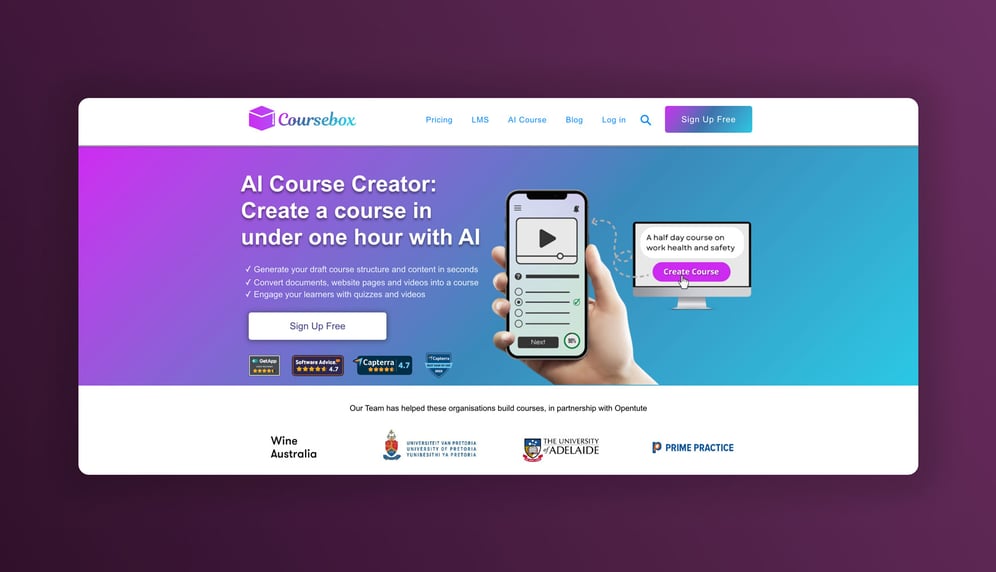-65134bee3f905.jpg)
Introduction
The benefits of using AI in course creation
Benefits of Using AI in Course Creation
| Benefits | Description |
|---|---|
| Enhanced Personalization | Through AI, courses can be tailored to meet the individual learning needs of students, fostering better engagement. |
| Efficiency in Content Creation | AI algorithms can streamline the process of creating course content, saving time and resources for educators. |
| Data-Driven Decision Making | AI enables the analysis of vast amounts of data to make informed decisions, improving the overall course quality. |
| Adaptive Learning Experience | AI-powered systems can adjust to the pace and learning style of students, providing a more personalized experience. |
Best practices for implementing AI in course creation
Best Practices for AI Implementation
| Practice | Description |
|---|---|
| Understanding Learning Objectives | Clearly define course objectives to guide AI in creating relevant and effective content for the intended learning outcomes. |
| Incorporating Feedback Mechanisms | Implement systems that gather and analyze student feedback to continuously refine and improve the AI-generated course content. |
| Regular Monitoring and Evaluation | Continuously monitor the performance of AI tools to ensure they align with teaching goals and enhance the learning experience. |
| Training Educators on AI Tools | Provide training to educators on how to best utilize AI tools in course creation to maximize their efficiency and effectiveness. |

Utilizing AI Tools for Content Creation
AI-generated content for course materials
Incorporating AI into course creation offers numerous advantages, such as Enhanced Personalization. AI can tailor course content to meet individual learning needs, enhancing student engagement. Moreover, Efficiency in Content Creation is realized through streamlined processes, saving educators valuable time and resources. Utilizing AI enables Data-Driven Decision Making by analyzing vast amounts of data to enhance course quality. Additionally, Adaptive Learning Experience is facilitated as AI systems adjust to students’ learning styles, providing a personalized educational journey.
Personalizing course content with AI
To effectively implement AI in course creation, following Best Practices for AI Implementation is crucial. This includes clearly defining Learning Objectives to guide AI in creating relevant content. Incorporating Feedback Mechanisms allows for continuous improvement based on student input. Regular Monitoring and Evaluation ensures AI tools align with teaching goals. Educators should receive Training on AI Tools to maximize efficiency and effectiveness in content creation.

AI-Powered Learning Experiences
Implementing AI for interactive and engaging learning experiences
Utilizing AI tools in content creation for educational purposes offers a range of benefits, emphasizing Enhanced Personalization to cater to individual learner requirements, thus fostering increased student participation. Additionally, the integration of AI leads to Efficiency in Content Creation, streamlining the overall process, thereby saving educators valuable time and resources. Through Data-Driven Decision Making, educators can enhance the quality of courses by analyzing extensive data. Furthermore, AI promotes an Adaptive Learning Experience as it adjusts to students’ distinct learning preferences, providing tailored educational pathways.
Adaptive learning with AI algorithms
To ensure effective incorporation of AI in course development, adhering to Best Practices for AI Implementation is imperative. This involves clearly outlining Learning Objectives to direct AI in crafting pertinent content. Integrating Feedback Mechanisms enables continual enhancements based on student feedback. Regular Monitoring and Evaluation guarantees alignment of AI tools with educational objectives. Equipping educators with Training on AI Tools is essential for optimal efficiency and efficacy in content creation.

AI Assessment and Feedback
Automated assessment using AI technology
AI integration in educational settings enables automated assessment, ensuring efficient evaluation of student performance. By employing AI algorithms, educators can expedite grading processes and identify areas where students require additional support. This streamlines the feedback loop, providing timely insights to enhance learning outcomes.
Providing personalized feedback through AI
AI facilitates personalized feedback by analyzing individual student data to offer tailored suggestions for improvement. Through this approach, educators can address specific learning needs effectively, fostering a more conducive learning environment. This personalized feedback loop promotes student engagement and progress.

Virtual Tutoring and Support
AI chatbots for virtual tutoring and student support
Virtual tutoring platforms leverage AI chatbots to provide students with immediate support and guidance outside traditional classroom settings. These chatbots can answer questions, offer explanations, and assist students in their learning journey, promoting independent learning. By integrating AI technologies, educational institutions can offer continuous support to students, enhancing their overall academic experience.
Enhancing student engagement with AI tutoring
AI tutoring tools enhance student engagement by adapting to individual learning styles and preferences. These tools can create interactive learning experiences tailored to each student, increasing motivation and participation. By utilizing AI in tutoring sessions, educators can deliver personalized content that resonates with students, fostering a more interactive and dynamic learning environment.
Comments
Post a Comment